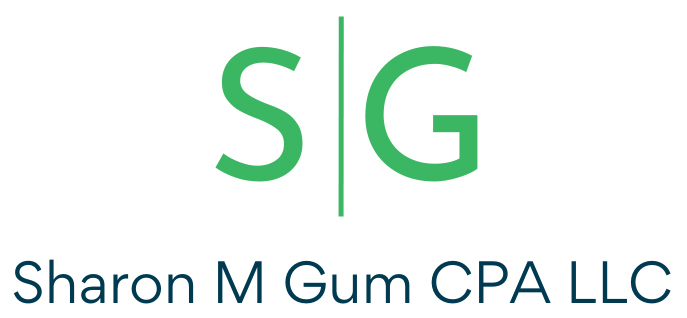Starting a business is an exciting endeavor! One of the very first and most crucial decisions you’ll make is choosing the right business structure. This choice has significant implications for your legal liability, tax obligations, and administrative burden. At Sharon M. Gum, CPA, we guide many local entrepreneurs through this important process, and we’re here to shed some light on the common options.
Why Does Your Business Structure Matter?
Think of your business structure as the legal and organizational framework upon which your company operates. It dictates:
- Liability: Who is personally responsible for business debts and lawsuits?
- Taxation: How will your business income be taxed (as personal income or separately)?
- Complexity: What level of administrative and regulatory compliance is required?
- Funding: What options are available for raising capital?
- Management: How is the business owned and controlled?
Choosing the wrong structure can lead to unnecessary tax burdens, personal liability risks, and limitations on future growth. Let’s explore some common business structures.
Common Business Structures Explained
-
Sole Proprietorship:
- What it is: The simplest structure, where the business is owned and run by one person, and there’s no legal distinction between the owner and the business.
- Liability: The owner is personally liable for all business debts and obligations.
- Taxation: Business income and losses are reported on the owner’s personal tax return (Schedule C).
- Complexity: Minimal setup and administrative requirements.
- Best for: Low-risk businesses with a single owner.
-
Partnership:
- What it is: Two or more individuals agree to share in the profits or losses of a business.
- Liability: Generally, partners share personal liability for business debts, though there are variations like Limited Partnerships (LPs) and Limited Liability Partnerships (LLPs) that offer some protection.
- Taxation: Profits and losses are “passed through” to the partners and reported on their individual tax returns. The partnership itself files an informational return (Form 1065).
- Complexity: More complex than a sole proprietorship, requiring a partnership agreement to outline responsibilities and profit/loss sharing.
- Best for: Businesses with multiple owners who want to share responsibilities and resources.
-
Limited Liability Company (LLC):
- What it is: A hybrid structure that offers the limited liability of a corporation but the pass-through taxation of a partnership or sole proprietorship.
- Liability: Owners (called members) are generally not personally liable for business debts and lawsuits.
- Taxation: Can choose to be taxed as a sole proprietorship (for single-member LLCs), a partnership (for multi-member LLCs), or even a corporation (S-corp or C-corp). This flexibility is a significant advantage.
- Complexity: More complex to set up than a sole proprietorship but generally less complex than a corporation. Requires filing articles of organization with the state.
- Best for: Many small to medium-sized businesses seeking liability protection and flexible tax options.
-
S Corporation (S-Corp):
- What it is: A corporation that elects to pass its income, losses, deductions, and credits through to its shareholders for federal income tax purposes, avoiding double taxation (like a C-corp).
- Liability: Shareholders generally have limited liability for corporate debts.
- Taxation: Profits and losses are passed through to the shareholders’ personal income without being subject to corporate income tax rates. Shareholders who work for the company must also pay themselves a reasonable salary subject to payroll taxes.
- Complexity: More complex than an LLC in terms of setup and ongoing compliance, including payroll requirements.
- Best for: Businesses that meet specific IRS requirements and can benefit from potential self-employment tax savings on distributions (after paying a reasonable salary).
-
C Corporation (C-Corp):
- What it is: A legal entity separate from its owners (shareholders).
- Liability: Shareholders generally have limited liability for corporate debts.
- Taxation: Taxed separately from its owners. Profits are taxed at the corporate level, and then dividends paid to shareholders are taxed again at the individual level (“double taxation”).
- Complexity: The most complex structure, with significant administrative and compliance requirements.
- Best for: Larger companies, those seeking to raise significant capital through the sale of stock, and those planning to go public.
Factors to Consider When Choosing Your Structure
The best business structure for your venture depends on several factors:
- Liability Risk: How much personal risk are you willing to take?
- Tax Implications: What are your tax preferences and anticipated tax burden?
- Administrative Overhead: How much time and resources are you willing to dedicate to compliance?
- Future Growth Plans: Do you anticipate seeking outside investment or going public?
- Ownership Structure: How many owners will be involved?
How Sharon M. Gum, CPA Can Help You Decide
Choosing the right business structure is a critical first step that can significantly impact your business’s success. At Sharon M. Gum, CPA, we have extensive experience helping entrepreneurs navigate these complex decisions. We can:
- Analyze your specific business needs and goals.
- Explain the pros and cons of each structure in detail.
- Help you understand the tax implications of each option.
- Assist with the setup and registration of your chosen business structure.
- Provide ongoing guidance to ensure you remain compliant.
Don’t leave this crucial decision to chance. Contact Sharon M. Gum, CPA today for a consultation to determine the optimal business structure for your startup venture.

Sharon M. Gum, CPA helps businesses throughout Southern Illinois succeed by offering business setup and advisory services, tax preparation, payroll and bookkeeping services. You didn’t start a business to manage payroll and keep track of bank reconciliations. By outsourcing your books to our financial experts, you can get back to doing what you love. With over 30 years working as an accountant in Waterloo IL, Sharon M. Gum, CPA can save you time and money – whether you have 2 employees or 20. We would love to help your business succeed. We are proud of the relationships we’ve built with small business owners throughout Monroe, St. Clair, and Randolph counties.



